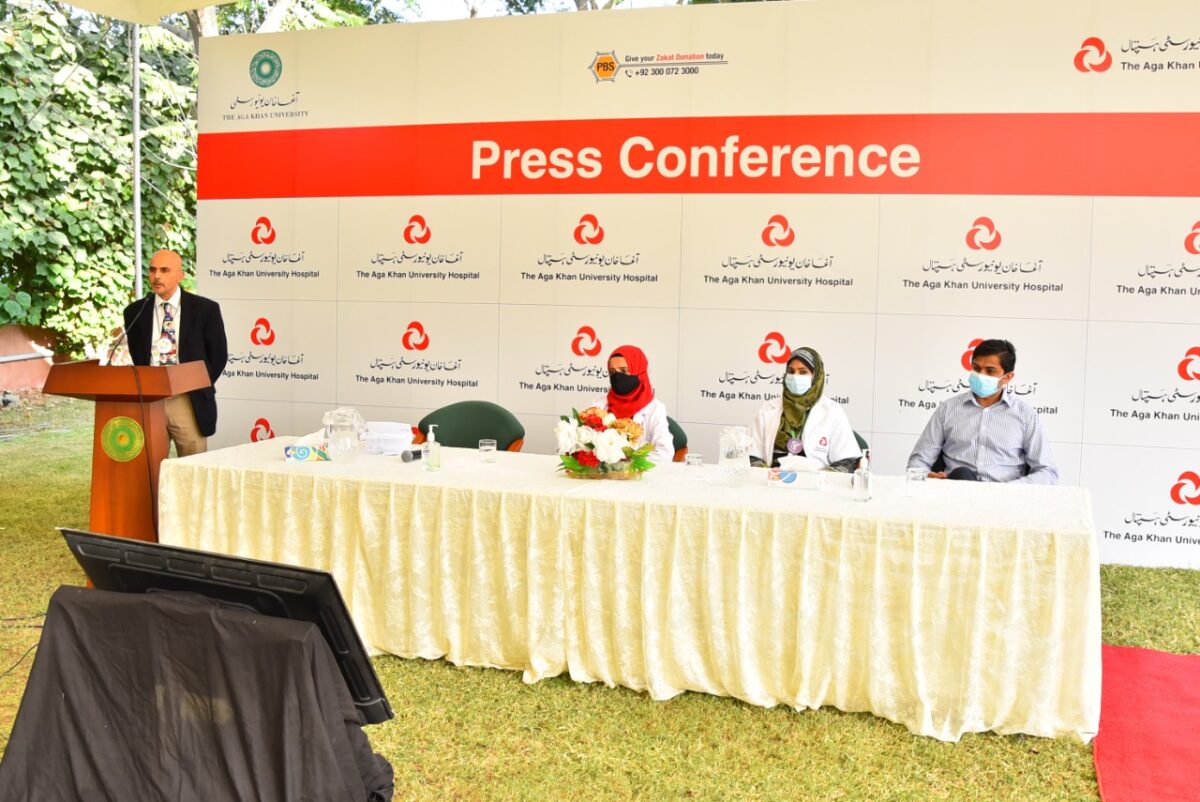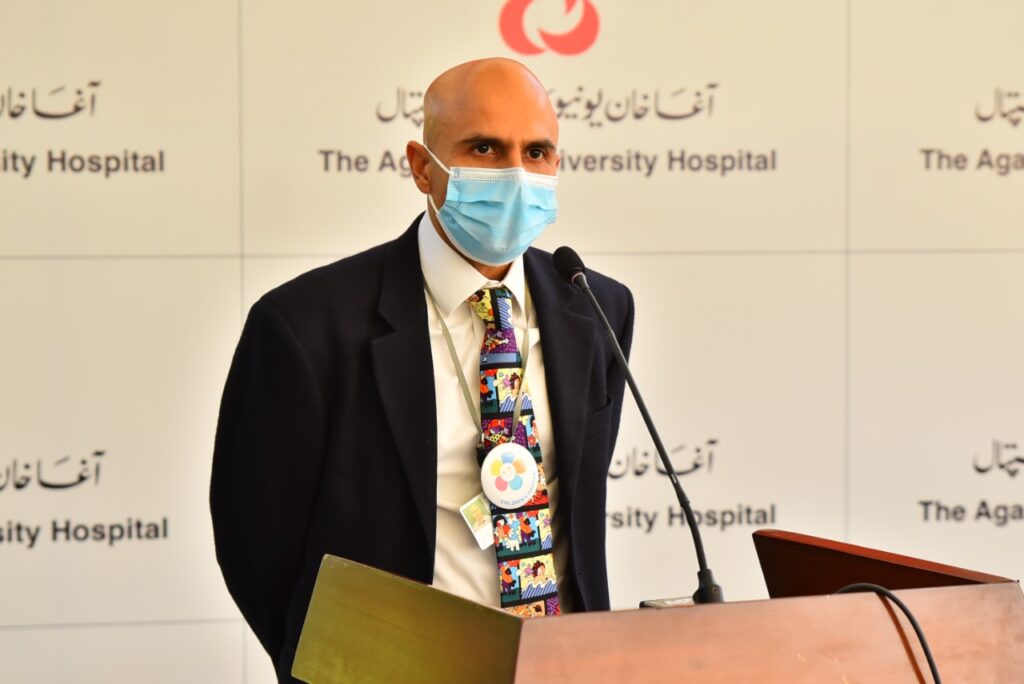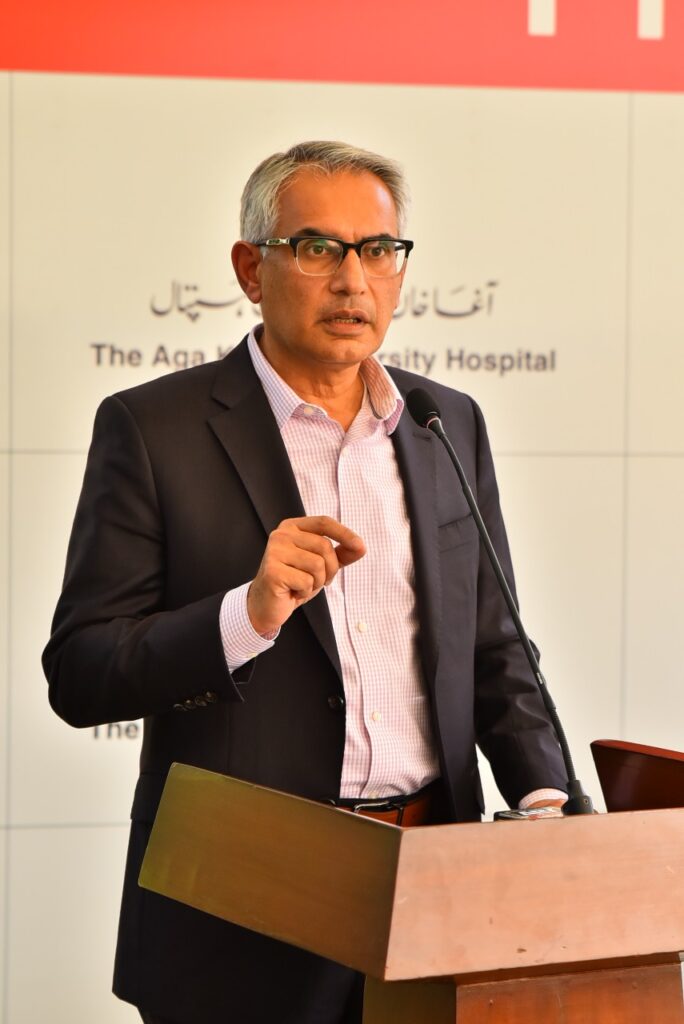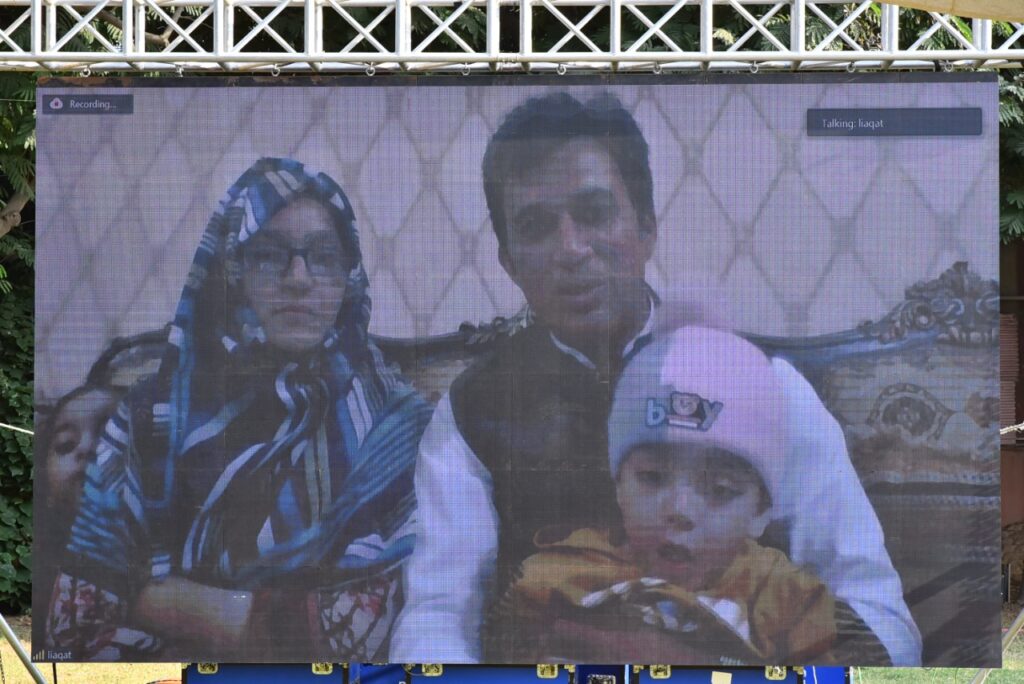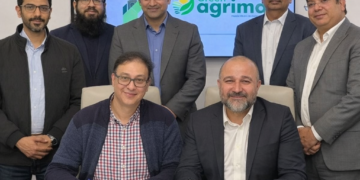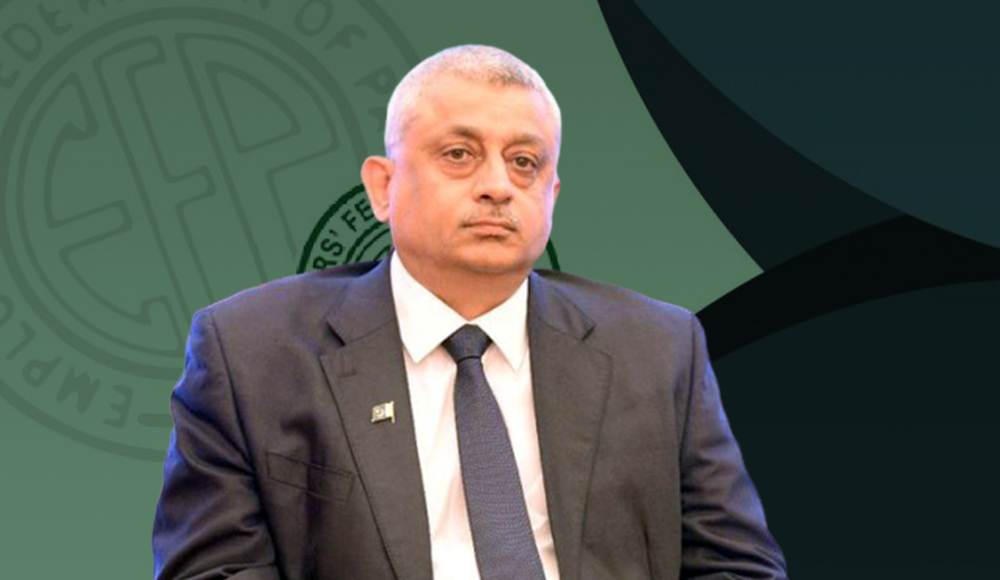KARACHI – Geneticists deliver the first-ever gene therapy for Spinal Muscular Atrophy at AKUH, obtain extraordinary results
Shavez, a two-year-old boy from Chiniot, was diagnosed with Spinal Muscular Atrophy (SMA) at the age of 6 months. In this condition, patients experience muscle weakness, decreased muscle tone, limited mobility, breathing problems, delayed motor skills and scoliosis (curvature of the spine), and other serious health problems. Many children suffering from this condition do not survive beyond their second birthday.
This news devasted Shavez’s parents. His elder sister already had this condition, and they knew all too well what it meant for their child’s life. “Even though we had a daughter with the same condition, no doctor ever told us that the condition could occur again if we got pregnant”, said Liaqat Ali Ghauri, Shavez’s father.
SMA is a group of hereditary diseases that destroys motor neurons – nerve cells in the brain stem and spinal cord that control essential skeletal muscle activity such as speaking, walking, breathing, and swallowing, leading to muscle weakness and atrophy. Even though there is a lack of data to assess the prevalence of SMA in Pakistan, cousin marriages are the most common reason attributed for its occurrence. Global data suggests that 1 in 10,000 live births are affected by SMA with a carrier frequency of approximately 1 in 50.
Liaqat had done his research with his daughter and knew there were no treatment options available until 2019, when Novartis, a global pharmaceuticals company, developed a gene therapy drug to cure the condition. This medication had shown promising results for patients in the United States and Europe.
This is a new drug that only requires one dose to cure the disorder, but the cost of this drug is millions of dollars, making it out of reach for most people. Novartis developed a globally managed access programme to provide free-of-cost therapy to 100 patients a year to address this. Shavez was one such lucky patient, selected by Novartis to receive the drug and became the first such candidate in Pakistan.
Dr Salman Kirmani, Associate Professor and Chair, Division of Women and Child Health, at the Aga Khan University and his team, saw Shavez in June 2020, when he was one and a half years old, and applied for him to be part of Novartis’s Managed Access Program. Soon, they received the nomination for the drug. Dr Kirmani’s team spent the next six months training the staff, working with authorities to receive the medication, and running the necessary tests to assess if Shavez was fit to receive the drug.
Shavez was administered the drug one day before his second birthday. Since then, he has received regular consultations and has shown significant improvement. The doctors at AKUH are hopeful that they will continue to see further progress in the years to come.
“We found out about this drug in 2019, but we thought we would not receive it until much later. But then, we found out about the programme and were lucky enough to have received it. Ten months later, we see significant improvement in Shavez’s condition, and we will continue to provide life-long follow-up to monitor his health”, said Dr Salman Kirmani.
“I thought our lives had ended, but we were living in hopes that there might be a miracle and one of our babies would survive. And there we have it, Shavez is recovering day by day. It is all because of the hard work of the doctors, nurses and staff at the Aga Khan University Hospital. Allah has been very kind to us”, said Mrs Liaqat.
For Shavez’s treatment, in addition to the drug cost, his family needed financial support to cover other treatment costs. This they received from Aga Khan University Hospital’s Welfare Programme. The hospital is committed to providing access to quality healthcare, and in 2020, supported over 850,000 indigent patients with welfare and zakat worth PKR 300 crore. Shavez received free-of-cost care at AKUH, making it possible for him to get world-class quality care at no additional financial burden to his family.





